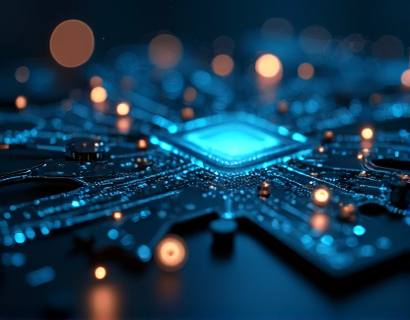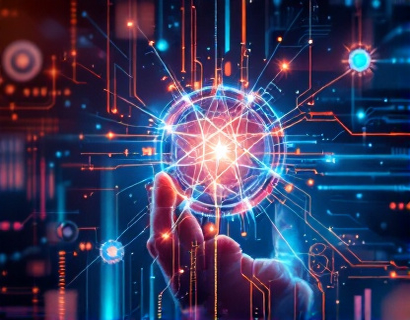Unlocking the Potential of AI-Powered Trigonometry Assistance: A Comprehensive Guide
In the digital age, the integration of Artificial Intelligence (AI) in educational tools has revolutionized the way we learn and interact with complex subjects like trigonometry. This article delves into the innovative realm of AI-powered trigonometry assistance, designed to cater to a diverse audience ranging from students and educators to parents and math enthusiasts. The focus is on creating an interactive learning environment that not only delivers specialized trigonometry knowledge but also ensures accuracy, safety, and accessibility for all users, particularly children and young learners.
The Need for Specialized Trigonometry Knowledge
Trigonometry, a branch of mathematics dealing with the relationships between the sides and angles of triangles, is fundamental in various fields including engineering, physics, and computer science. However, its complexity often poses a challenge to learners. An AI-powered trigonometry assistant addresses this gap by providing specialized knowledge tailored to different levels of understanding and learning styles. This tool is particularly valuable for students who require additional support or for those looking to deepen their understanding of trigonometric concepts.
Interactive Learning Experiences for All Ages
The beauty of AI-powered trigonometry assistance lies in its ability to offer interactive learning experiences. Through a conversational interface, users can engage in real-time discussions, ask questions, and receive immediate, accurate responses. This dynamic approach caters to various learning preferences, making trigonometry more accessible and enjoyable. For younger users, the interface can be adapted to include visual aids, gamified elements, and simplified language, ensuring that learning remains engaging and effective.
Content Verification and Accuracy
One of the critical features of an AI-powered trigonometry assistant is its commitment to content verification. In a field where precision is paramount, ensuring the accuracy of mathematical information is crucial. The AI system is designed to cross-reference data from multiple reliable sources, providing users with confidence in the information they receive. This verification process not only enhances the learning experience but also builds trust in the tool, making it a valuable resource for educational purposes.
Creating a Safe and Child-Friendly Environment
For parents and educators, the safety and appropriateness of educational content for children are of utmost importance. An AI-powered trigonometry assistant addresses this concern by offering a child-friendly version of its platform. This version is carefully curated to exclude any inappropriate content, ensuring a secure and positive learning environment for young users. Features such as parental controls and age-appropriate content filtering further enhance the safety and usability of the tool for children and students.
Enhancing Educational Outcomes
The integration of AI in trigonometry education has the potential to significantly improve learning outcomes. By providing personalized explanations and adaptive learning paths, the AI assistant can cater to the individual needs of each user. This personalized approach helps in identifying knowledge gaps and reinforcing areas where the user may need more practice. For educators, this tool can serve as a valuable supplement to traditional teaching methods, offering insights into student progress and areas that require additional attention.
Benefits for Students and Educators
For students, an AI-powered trigonometry assistant offers a range of benefits. It provides immediate feedback on exercises and quizzes, helping to reinforce learning and build confidence. The interactive nature of the platform encourages active participation and deeper engagement with the material. For educators, the tool can be a powerful resource for lesson planning and assessment. It can help in creating customized problem sets, tracking student performance, and identifying trends in common misconceptions or difficulties.
Support for Parents and Caregivers
Parents and caregivers play a crucial role in supporting their children's education. An AI-powered trigonometry assistant can be an invaluable ally in this endeavor. It offers resources and explanations that parents can use to help their children with homework or study sessions. The platform's child-friendly version ensures that parents can feel reassured about the content their children are accessing, promoting a collaborative and supportive learning environment at home.
Engaging Math Enthusiasts and the Broader Community
The reach of AI-powered trigonometry assistance extends beyond traditional students and educators. Math enthusiasts, whether amateur or professional, can benefit from the in-depth knowledge and interactive features provided by the AI assistant. This tool can serve as a resource for self-study, helping users to explore advanced topics and stay updated with the latest developments in the field. For the broader community, it fosters a culture of continuous learning and curiosity, encouraging more people to engage with mathematics and its applications.
Technological and Educational Innovation
The development of AI-powered trigonometry assistance represents a significant step forward in educational technology. By leveraging the capabilities of AI, this tool not only enhances the learning experience but also sets a new standard for interactive educational platforms. The focus on accuracy, safety, and accessibility ensures that the tool is not only effective but also inclusive, breaking down barriers to learning and making high-quality educational resources available to a wide audience.
Conclusion: The Future of Trigonometry Learning
In conclusion, an AI-powered trigonometry assistant offers a transformative approach to learning this complex subject. By providing specialized knowledge, interactive learning experiences, and a safe, child-friendly environment, it addresses the diverse needs of students, educators, parents, and math enthusiasts. As technology continues to evolve, the potential for AI to enhance educational outcomes and foster a deeper understanding of mathematics is immense. Embracing these innovations can lead to a more engaged, confident, and mathematically proficient generation.










































